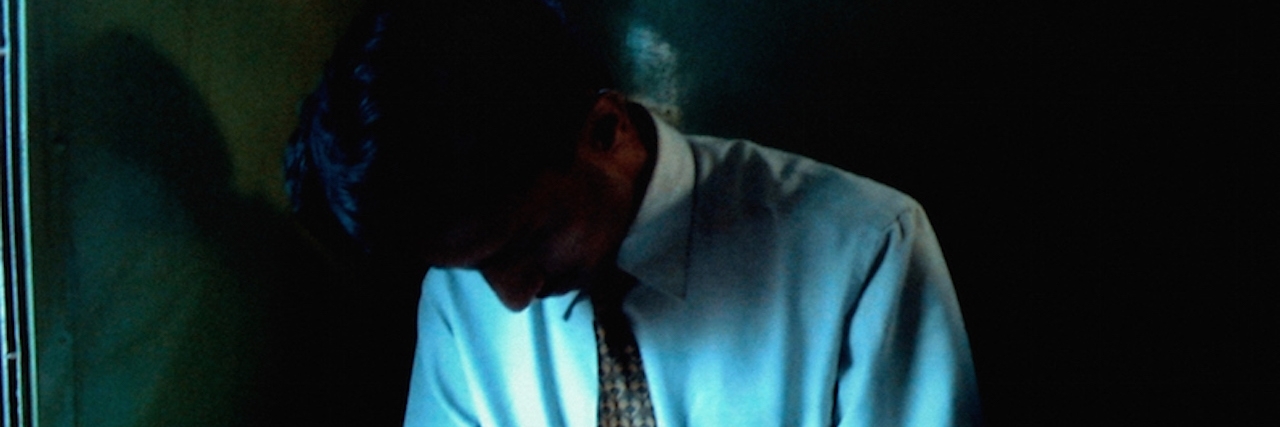My work on the topic of self-harm has focused on children and adolescents. The “epidemic” of self-harm faced by our schools is constant fodder for our tabloids, and led to me traveling frantically around the United Kingdom trying to meet the demand for my expertise. I was once a child who self-harmed, too. I could relate from personal experience. It was in the dim and distant past, but I got it.
But what I never stopped to think about was the issue of adult self-harm. We know that the demographics are changing, that younger and younger children are hurting themselves. But adults.? No. This is not something that affects them, is it?
Wrong. So very wrong.
As I share my story, I’m finding I’m far from alone. There are a lot of other adults out there who are using self-harm to manage their thoughts and feelings, too. Some of them have done it since childhood – or like me have reverted to a coping mechanism of old. Others have discovered self-harm as a fully-fledged adult.
But we’re not talking about it.
Why? I think it’s because this is not our territory. Self-harm is seen as the domain of the 14-year-old emo girl. We are no more likely to bare our arms and our souls than we are to replace our “grown up clothes” with a Slipknot hoody and a badly rolled spliff. We’ve been there, we’ve done that. We’ve grown up and out of it. Right?
And so we all paint this picture and try to adhere to it, leaving adults who self-harm with nowhere to go. No one to ask, no one to offer them support. I found when I talked openly from my professional podium about my self-harm, I opened the flood gates for a wide range of adults to come forward and tell me, “Me too.”
The relief in the messages I receive is palpable. Other adults realize they’re not the only ones, and in a way I feel relieved, too. Despite my knowledge on the topic, I felt like perhaps I was the only adult in the room who was overcoming this battle – because it’s so different than being a younger self-harmer. As an adult we have responsibilities, which give rise to big questions: What do we tell our children? Do we need to tell our employer? Are we safe unsupervised? How much can we share with our partner?
There are so many questions yet to be explored. I’m an expert in self-harm in children and adolescents, and while the field evolves and changes and I’m learning all the time, I feel confident answering questions on that topic. But the world of adult self-harm feels like an undiscovered underworld. There are lots of questions to which I don’t know the answer yet. My personal journey will help, of course, but it’s just one story. If we’re to equip others with the support and advice they need, then it needs to be a team effort.
So what points am I meandering to here? I guess, in summary, there are three things to say. Firstly, self-harm is not a behavior confined to children and young people. It’s afflicting plenty of adults, too. Secondly, as adults, we feel scared or ashamed of sharing our self-harm. We fear we’ll lose our children, our jobs or our partners if we’re open about it, so these painful stories go untold. Finally, self-harm is not easy to fix. For some of us it becomes a deeply embedded coping mechanism which is unlikely to be overcome without appropriate support and help.
But my main point, the point I hope some of you will have the confidence, self-assurance, support or bloody mindedness to follow through on, is that we need to talk about it. Let’s stop adult self-harm from cowering in a corner, left unseen and misunderstood. Let’s be open and honest and help each other move forward. This is not something we should feel ashamed about – it’s hard to be honest because many people simply do not understand. But, and this is a big but, they will never understand unless we help them. If we share our stories, if we educate those around us and if we stand unafraid in the face of judgment and say, “I hurt and it shows, but I want it to stop,” then those with strength will not judge, will not walk away, will not shame us. They will step forward, they will take our hand, they will listen and they will learn.
People can be surprising if you let them.
Follow this journey on In Our Hands.
If you or someone you know needs help, see our suicide prevention resources.
If you need support right now, call the Suicide Prevention Lifeline at 1-800-273-8255.

